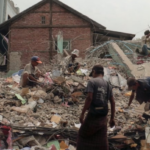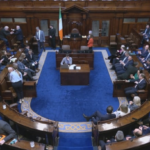Nearly all countries have missed a crucial UN deadline to submit updated targets for cutting carbon emissions, raising concerns about global efforts to tackle climate change.
Just ten out of nearly 200 nations required under the Paris Agreement met the February 10 deadline, according to a UN database tracking submissions. The latest round of climate pledges—known as nationally determined contributions (NDCs)—was expected to include stronger targets for reducing greenhouse gas emissions by 2035, along with detailed strategies to achieve these goals.
Major Economies Absent from Submissions
Despite growing urgency, many of the world’s largest economies failed to submit revised plans. China, India, and the European Union—all key players in global climate policy—were among the notable absentees.
Most G20 nations also failed to meet the deadline, with only the United States, Britain, and Brazil—which will host this year’s COP30 UN climate summit—submitting their updated pledges on time.
While the US submitted an NDC, it was largely a symbolic gesture, as it had been prepared before Donald Trump withdrew the country from the Paris Agreement. There are no penalties for missing the deadline, but NDCs serve as accountability measures to track global climate action.
Fears of a Backslide on Climate Action
The slow response from governments has heightened concerns about a potential backslide on climate action, particularly as world leaders juggle geopolitical tensions, security concerns, and economic pressures.
Ebony Holland, a policy lead at the International Institute for Environment and Development, said the US retreat from climate leadership under Trump was a significant setback, but broader geopolitical challenges were also contributing to delays.
“It’s clear there are some broad geopolitical shifts underway that are proving to be a challenge when it comes to international cooperation, especially on big issues like climate change,” Holland said.
The European Union, which has historically been a leader in climate policy, has blamed elections and internal bureaucracy for its delayed submission. An EU spokeswoman said the bloc’s collective emissions target would be revealed “well ahead” of COP30 in November.
China, the world’s largest emitter and biggest investor in renewable energy, is expected to release its revised NDC in the second half of 2025, analysts say.
Challenges for Developing Nations
While major economies face political and economic obstacles, some poorer nations have struggled to meet the deadline due to a lack of financial resources and technical expertise needed to compile complex climate plans.
Evans Njewa, a Malawian diplomat and chair of the Least Developed Countries group, called on wealthier nations to take responsibility and set a stronger example.
“Big emitters, whose historical and ongoing pollution has driven the climate crisis, must take responsibility and lead by example,” Njewa said.
UN Calls for Stronger Climate Commitments
This is not the first time countries have missed deadlines for updating their NDCs since the Paris Agreement was signed in 2015.
UN Climate Chief Simon Stiell has urged nations to deliver “first-rate” submissions by September, allowing for a full assessment before COP30 in Belem, Brazil.
Greenpeace International’s Tracy Carty warned that further delays could have devastating consequences, saying:
“The worsening climate crisis will not wait or pause its disastrous impact as nations delay their action plans.”
However, some analysts argue that taking extra time to strengthen proposals is preferable to rushing out weak commitments.
Linda Kalcher, executive director of Strategic Perspectives, cautioned that delays could send the wrong message, even if countries are working on higher-quality pledges.
“The concern is that if too many countries delay, you could give the perception that they’re not willing to act,” Kalcher said.
With the climate crisis intensifying, all eyes will be on world leaders in the coming months to see whether they can strengthen their commitments or risk falling further behind on the fight against global warming.
















